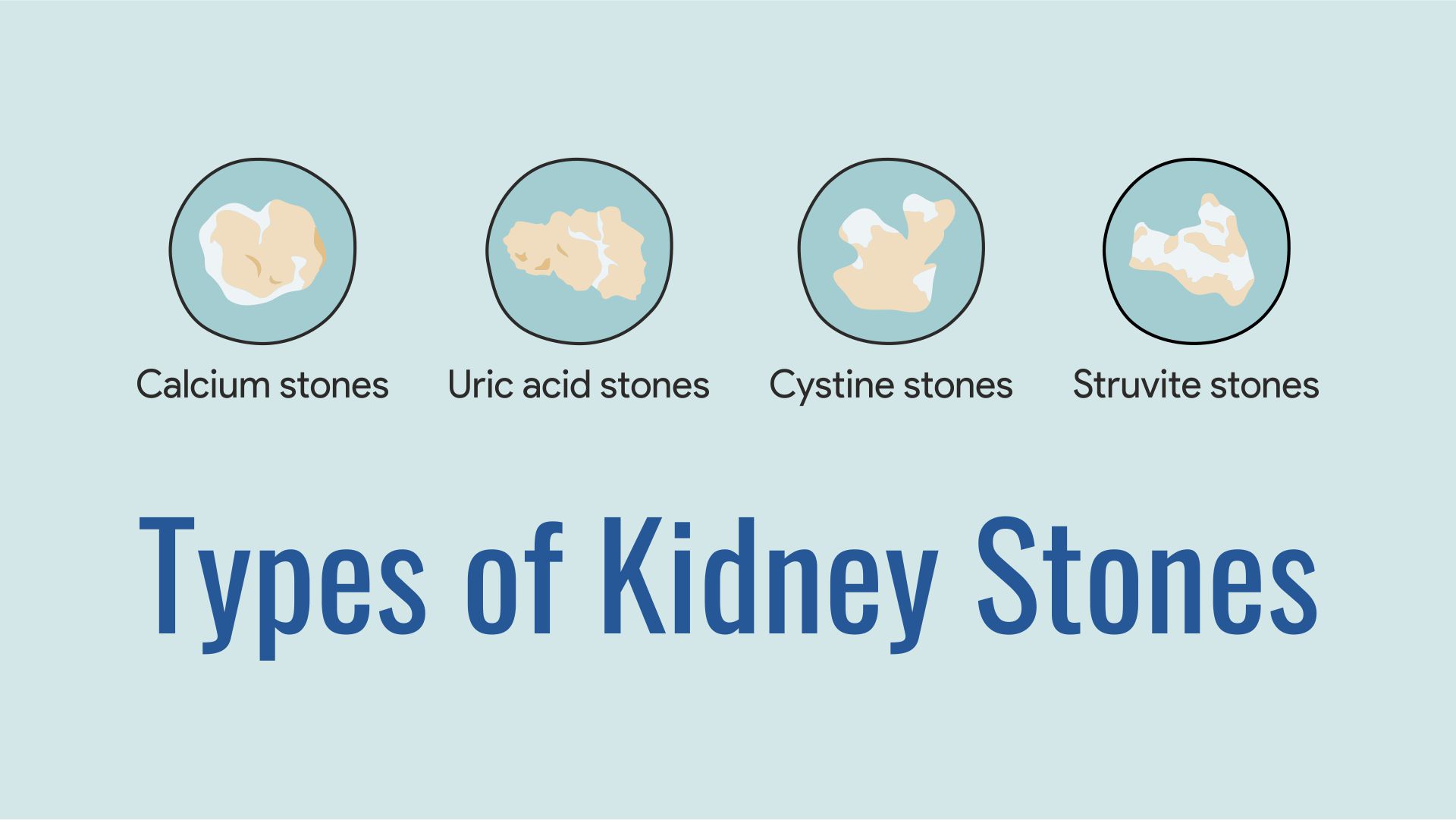Kidney stones are solid formations of minerals and salts that accumulate in the kidneys. Understanding the different types of kidney stones is crucial for prevention and treatment.
Calcium Stones
Calcium Oxalate Stones
Calcium oxalate stones are the most common type of kidney stone. They form when calcium in the urine combines with oxalate, a substance naturally found in certain foods. Foods rich in oxalate include spinach, beetroot, nuts, and chocolate. While consuming these foods in moderation is generally safe, individuals with a predisposition to kidney stones may have a higher risk of kidney stone formation.
Calcium Phosphate Stones
Calcium phosphate stones are less common and usually develop when urine is too alkaline, meaning it has a higher pH.
Uric Acid Stones
Uric acid stones usually form in acidic urine. High acidity can result from a diet rich in protein, particularly from red meat & shellfish. Uric acid stones are more common in individuals with certain medical conditions, such as gout. Staying hydrated and making dietary adjustments are key to preventing uric acid stone formation.
Struvite Stones
Struvite stones typically develop following a urinary tract infection (UTI). Bacteria responsible for the infection produce an enzyme called urease, which raises the pH of the urine, leading to struvite stone formation. These stones can grow rapidly and become quite large, often causing minimal symptoms until they reach a significant size. Preventing UTIs is crucial to reducing the risk of struvite stones.
Cystine Stones
Cystine stones are the rarest form of kidney stones, caused by a genetic disorder called cystinuria. This condition leads to excessive excretion of cystine, an amino acid, in the urine. Cystine tends to crystallize in the urine, forming stones. Due to their hereditary nature, cystine stones can be challenging to manage and often recur. Patients with cystinuria should work closely with healthcare providers to monitor and manage their condition.
Xanthine Stones
Xanthine stones are exceptionally rare and result from a genetic disorder that prevents the body from breaking down xanthine, a purine derivative. As xanthine accumulates, it crystallizes and forms stones. Due to their rarity, xanthine stones are less understood but require specialized care and management.
FAQs about Types of Kidney Stones
- What is the most common type of kidney stone?
The most common type of kidney stone is the calcium oxalate stone, formed when calcium combines with oxalate in the urine. - How can I prevent calcium oxalate stones?
Prevention involves staying hydrated, reducing intake of high-oxalate foods like spinach and beet roots, reducing intake of animal protein and ensuring adequate calcium intake. - Are struvite stones related to infections?
Yes, struvite stones are usually linked to urinary tract infections caused by bacteria that produce urease, increasing the pH of urine. - What is cystinuria?
Cystinuria is a hereditary disorder that leads to the excessive excretion of the amino acid cystine, resulting in the formation of cystine stones. - Why are xanthine stones so rare?
Xanthine stones are rare because they result from a specific genetic disorder that impairs the breakdown of xanthine, a compound that is not commonly problematic in most people. - Can diet changes help prevent uric acid stones?
Yes, dietary changes, such as reducing animal protein, can help prevent uric acid stones.


Leave a Reply